Chapter 13 Payment Calculator

Chapter 13 Calculator
Chapter 13 bankruptcy is a debt-repayment option that spans between three to five years. This page is designed to teach you how to calculate your minimum monthly payment for Chapter 13 bankruptcy. The Chapter 13 payment calculator does this by considering both secured and priority payments—amounts all debtors are required to pay during this period of time. It’s important to note, however, that some people have to pay more.
Having an experienced Louisville bankruptcy lawyer help with your calculations is a must for your Chapter 13 repayment plan. At O’Bryan Law Offices, we don’t want our clients to feel like filing a Chapter 13 bankruptcy is a bad thing. Despite what many people say, filing for bankruptcy is a path to financial freedom.
With the help of our knowledgeable Chapter 13 attorneys, our clients receive a personalized financial strategy tailored to their situation. To schedule a free consultation with an attorney, call our Louisville office at 502-339-0222 today.
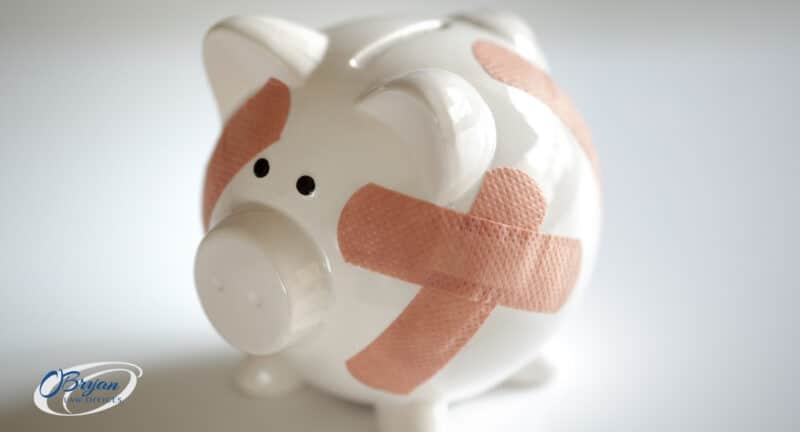
What Is Chapter 13 Bankruptcy?
A Chapter 13 filing is perfect for people who want to protect their homes and other assets. It may also be a better option than Chapter 7 or Chapter 11 if you’re a small business owner. With Chapter 13, you essentially agree to a carefully crafted debt repayment plan.
Generally, it involves a partial reduction of an individual’s unsecured debts, reduced debt interest rates, and extended payment terms. Many people appreciate the financial breathing room that Chapter 13 offers. You also keep your home and retirement assets, as well as vehicles and personal belongings in most cases.
A Chapter 13 repayment plan helps people, families, and even businesses to restructure their debt. This allows them to pay back creditors either partially or completely. No matter what your reason for Chapter 13 bankruptcy, an experienced Louisville bankruptcy lawyer can help you achieve debt relief.
Filing for Chapter 13
First, ensure that Chapter 13 is the right option for you. Most people choose between Chapter 7 and Chapter 13 to gain control over his or her financial affairs. While both chapters have their own specific advantages and disadvantages, they tend to work better when targeting a specific problem.
With the help of a Chapter 13 calculator, you can catch up on loan payments, missed mortgage payments, and even prevent foreclosure or repossession. But it’s important to note that a foreclosure proceeding can still happen if the mortgage company completes the sale before a bankruptcy filing.
Chapter 13 Filing Steps
Below, we outline the specific filing steps we recommend for Chapter 13.
- Analyze the debt. Having too much debt affects your eligibility for Chapter 13. Additionally, debts such as mortgage payments, certain taxes, and child support arrears must receive full repayment over a 3 to 5 year period.
- Value the property. Figure out how much personal property you own, then determine how much you can protect with Kentucky bankruptcy exemptions. Even though you can technically keep all of your property, your debt management plan will require certain monthly payment amounts to creditors that equal your nonexempt property value. So make sure to factor in the nonexempt property value when calculating your Chapter 13 payments.
- Determine your average monthly income. The most important step is figuring out whether your current monthly income is enough to pay for monthly expenses, debt repayments, and nonexempt assets. Without enough monthly net income, a bankruptcy court won’t allow you to proceed.
- Fill out the required forms. Work with your attorney to ensure that you fill out the appropriate paperwork.
- Take the pre-filing course. This credit counseling course is mandatory. Use the certificate that you receive afterward to file with your bankruptcy paperwork.
- File the official bankruptcy forms and pay the fee. This begins the bankruptcy process.
- Give your trustee the documents which prove your assets and regular income. Then, attend all court hearings.
- Make your payments within 30 days. If a debtor fails to make payments, the court will dismiss their case.
- Get the bankruptcy discharge. This happens after you fully complete your bankruptcy proceeding. The Chapter 13 discharge relieves you of payment obligations when you complete your repayment plan.
What Would My Chapter 13 Plan Payments Be?
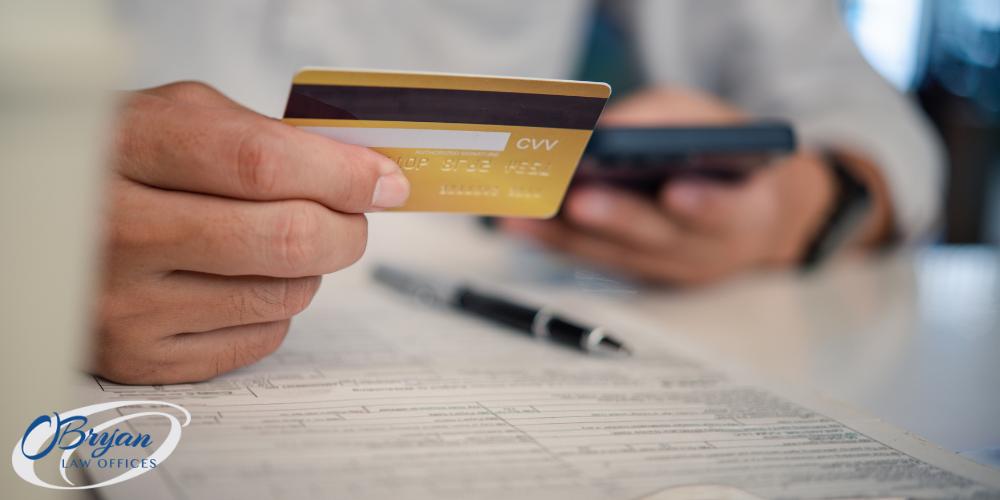
To get an idea of what your Chapter 13 monthly payments might be, start by calculating your income for the six months prior to filing bankruptcy. Deduct all your allowable expenses from this amount. Then, pay your priority debtors and make payments toward the secured debts you want to keep during your bankruptcy filing.
Lastly, add a payment to your unsecured creditors that equals what you would pay them in a Chapter 7 bankruptcy. The total amount that you end up with is your minimum plan payment for each month. We strongly recommend speaking with an attorney about your case, as we can help you come up with a payment plan that works best for you.
Chapter 13 Plan Payment Examples
Sometimes, it can be easier to visualize how to form your own plan payments after looking at examples of others’ plan payments. The table below shows an example of what someone’s Chapter 13 monthly budget may look like during their case.
Payment Type | Chapter 13 Monthly Budget |
Mortgage | $3,000 |
Payment to catch up on mortgage | $300 |
Vehicle loan | $530 |
Auto and home insurance | $420 |
Gas and vehicle maintenance | $450 |
Utilities | $390 |
Groceries | $310 |
Basic household expenses | $200 |
Medical and dental care | $50 |
Clothes and other living expenses | $200 |
Other miscellaneous expenses | $100 |
Total Monthly Expenses | $5,950 |
Total Monthly Income | $6,500 |
Difference Between Expenses and Income | $550 left over |
How to Calculate Chapter 13 Payments With Disposable Income
Disposable income is money you have left to spend after subtracting your allowed bankruptcy expenses. It determines whether you qualify for a bankruptcy discharge in both Chapter 13 and Chapter 7. In claiming deductions, you use the actual payroll deduction cost. For others, however, you use national or local standards.
Below, we list common deductions you may take.
- Food and clothing
- Utilities and housing
- Car loans
- Taxes
- Involuntary payroll deductions
- Life insurance
- Court-ordered payments
- Education costs
- Childcare expenses
- Medical bills
In order to file for Chapter 13 bankruptcy, you’ll need to fill out a form that will help determine your disposable monthly income. The amount of money left over after deducting a debtor’s monthly living expenses is the number that should be paid each month towards their unsecured debts and non-priority debts. This plan typically lasts from 3 to 5 years.
How Much Should You Pay with Unsecured Debt in Chapter 13?
General unsecured debt encompasses all debts other than priority and secured debt. The amount you pay to unsecured creditors is either the greater of your disposable income or the amount they would have received in a Chapter 7 filing.
In terms of disposable income, your creditors will receive remaining funds each month after your allowed expenses, secured debts, and priority claims. When it comes to the best interest of the creditors, they receive what they would have in a Chapter 7 filing. In other words, it is an amount equal to a debtor’s property value that’s unprotected by exemptions.
Chapter 13 Applicable Commitment Period
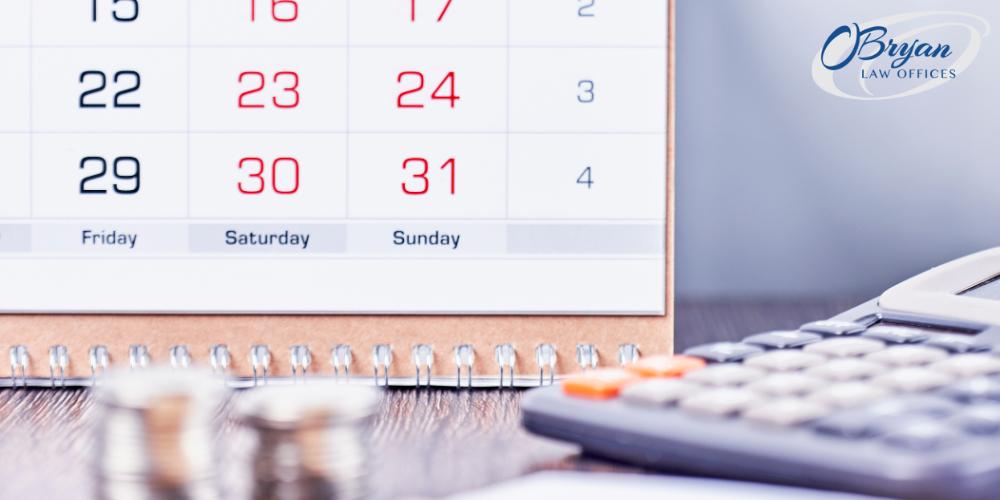
The goal for every bankrupt person or business enduring Chapter 13 is to repay all disposable income through an applicable commitment period. This applicable commitment period depends on the bankrupt person’s average monthly income. This period will only be three years if their income falls under the state median, or it will be five years if their income exceeds the state median.
How Can You Reduce Chapter 13 Repayment Plan?
If you wish to lower your monthly minimum payment, you must approach the bankruptcy court.
Debtors may want to lower their monthly payments because they:
- Took a lower-paying job
- Lost key customers or incurring unexpected business expenses
- Suffered a serious personal injury or disability that permanently affects their ability to work
- Paid health insurance premiums for both themselves and their dependents that their employer used to cover
Wanting to lower payments makes a lot of sense when your financial situation changes, especially if you still have “disposable income.” However, lowering these payments requires you to alter your Chapter 13 repayment plan. This is because the monthly payments are an essential part of the plan. In order to modify your Chapter 13 plan, we recommend going back to the calculator. Take into account the priority debts, secured debts, unsecured debts, secured claims, unsecured claims, and feasibility.
Calculating Chapter 13 Payment with New Income
In Chapter 13 repayment, debtors are required to report any changes in income. This is true whether the debtor’s income increases or decreases. Debtors undergoing Chapter 13 bankruptcy must use their “best efforts” to make their plan work.
If they see a significant increase in income, they will be asked to increase their monthly payments. A debtor’s failure to report increased income brings the risk of bankruptcy case dismissal, losing their right to a debt discharge, and even punitive bankruptcy fraud charges.
Why Might Your Chapter 13 Payment Plan Be Higher?
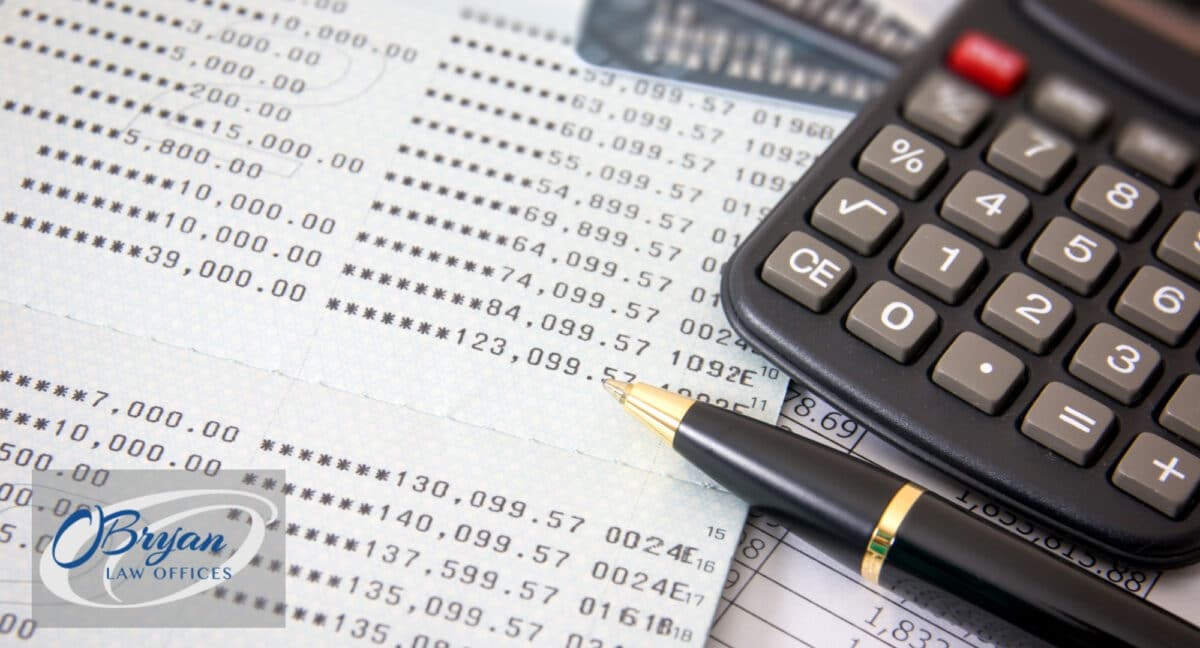
It is possible for a person’s Chapter 13 payments to increase during their repayment period. This can happen for a variety of reasons. Below, we list three common scenarios that may cause an increase in your monthly Chapter 13 payments.
You Have More Disposable Income
Maybe you receive a promotion at work, or you change to a higher-paying job. This extra income could lead to an increase in your monthly payments.
You Have Paid Off a Secured Debt
Additionally, paying off an expensive secured debt, like a home or car, could also increase your monthly payments. This increase in disposable income could be used to complete your Chapter 13 plan faster or to pay off more of your creditors.
You No Longer Have to Make Support Payments
Suppose you had to make monthly support payments like child support or alimony. If those required payments come to an end before your bankruptcy case is resolved, the extra disposable income may lead to increased payments.
Chapter 13 FAQs
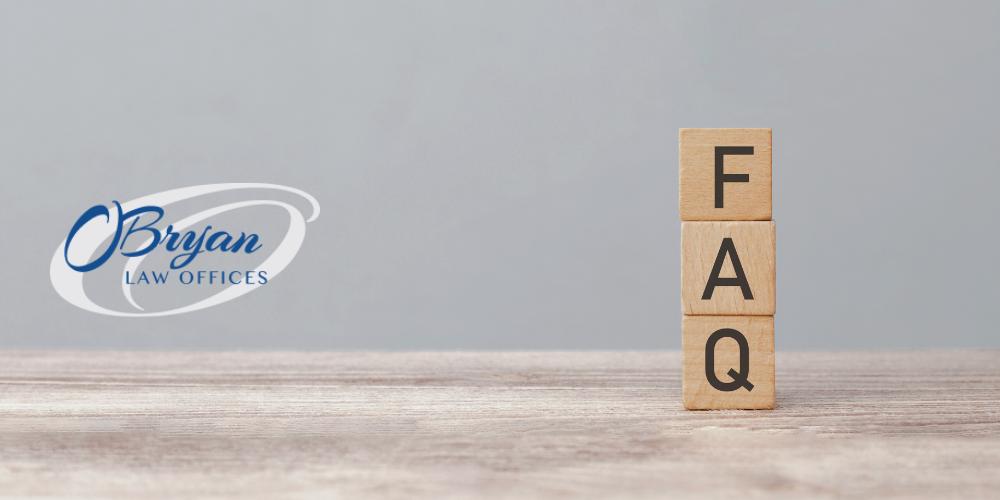
Can I Keep My Property in Chapter 13 Bankruptcy?
In Chapter 13 bankruptcy, you can generally keep your property while reorganizing your debts. Unlike Chapter 7, which may involve liquidating assets to pay creditors, Chapter 13 allows you to create a repayment plan spanning three to five years to settle debts.
The repayment plan considers your income, expenses, and the value of your assets. You’re expected to pay creditors a portion or the full amount owed during this period. Typically, you can keep your property if you continue making payments according to the agreed-upon plan.
Certain conditions apply, such as ensuring your repayment plan includes adequate provisions to cover mortgage or car loan payments. Also, the value of non-exempt property (assets that aren’t protected) might affect the amount you need to repay creditors.
Can I Get a Repossessed Car Back if I File Chapter 13?
Filing for Chapter 13 bankruptcy might enable you to get a repossessed car back by including it in your repayment plan. If your car was repossessed before filing, Chapter 13 allows you to catch up on missed payments and potentially retrieve the vehicle.
By proposing a repayment plan in Chapter 13, you can spread the arrears over three to five years, allowing you to repay the overdue amounts and keep the car. However, it’s crucial to act promptly as there are time limits and specific procedures involved in reclaiming a repossessed vehicle through bankruptcy.
You must adhere strictly to the terms of your Chapter 13 repayment plan, ensuring you make regular payments on the vehicle and fulfill the obligations outlined in the bankruptcy court’s order.
Can I Buy a Car While in Chapter 13?
While in Chapter 13 bankruptcy, it’s possible to buy a car, but it typically requires court approval. You’ll need permission from the bankruptcy trustee overseeing your case, as any major financial transactions during Chapter 13 are subject to their review.
To purchase a car, you’ll likely need to demonstrate a legitimate need for the vehicle, provide a solid reason for the purchase, and show that you can afford the new car payments while maintaining your Chapter 13 repayment plan. Your ability to obtain financing might be more challenging due to the bankruptcy, potentially resulting in higher interest rates or stricter terms.
Does Chapter 13 Stop Foreclosure?
Yes, Chapter 13 bankruptcy can halt foreclosure proceedings and provide an opportunity to save your home. When you file for Chapter 13, an automatic stay goes into effect, immediately stopping ongoing foreclosure actions.
The automatic stay legally prevents creditors, including mortgage lenders, from continuing foreclosure proceedings temporarily. It provides a window of opportunity to create a repayment plan within Chapter 13 that allows you to catch up on missed mortgage payments over a period of three to five years while maintaining regular mortgage payments.
As long as you adhere to the repayment plan and continue making mortgage payments according to the terms outlined in the plan, Chapter 13 can help you prevent foreclosure and keep your home.
How Will Filing Chapter 13 Affect My Credit?
Filing for Chapter 13 bankruptcy will impact your credit score and report. Initially, your credit score may drop significantly due to the bankruptcy filing, and it will remain on your credit report for up to seven years or even 10 years in some cases.
However, Chapter 13 shows an effort to repay debts, which can be viewed more favorably by creditors compared to Chapter 7 bankruptcy, which involves the liquidation of assets. While in Chapter 13, you’ll be working on a repayment plan, and if you consistently make payments as agreed, it might positively influence your creditworthiness over time.
Call a Chapter 13 Bankruptcy Attorney at O’Bryan Law Offices Today
If you’re struggling under the weight of your mounting debts, don’t give up hope. O’Bryan Law Offices can help! Our bankruptcy attorneys have extensive knowledge of bankruptcy law, the bankruptcy code, financial management, debt relief options, and so much more. We prioritize every attorney-client relationship while protecting every client’s sensitive or confidential information.
You can count on our team to find a solution that’s right for your situation and offer options tailored to your total monthly income, actual expenses, personal loans, mortgage payment, consumer debt, and so much more. For more information about how we might be able to get you back on track, please call us at 502-339-0222 or fill out our contact form below.
Bankruptcy






